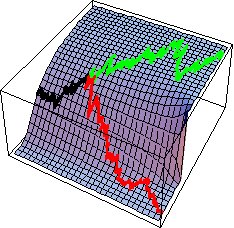...Columbia University on March 1st, 2019. With deep affection and appreciation we honor our colleague Mark Brown on the occasion of his 75th birthday. Mark’s dedication, warmth and humor have made him a beloved colleague and teacher at Columbia University. Click here for further information The international workshop on “Statistical Challenges in High-dimensional and Complex Data” Friday, September 14 and Saturday, September 15, 2018 The international workshop on “Statistical Challenges in High-dimensional and Complex Data” will be held at Columbia University on Sep 14 and Sep 15, 2018. The workshop will cover a wide range of topics including high-dimensional regression, topic modeling, social network, deep neural networks, etc. The workshop address is https://sites.google.com/view/2018-columbia-hdcd-workshop/ . Please register by Aug 31 through the registration link on the website if interested. Click here for further information. 2017-2018 Conference on Statistical Methods for Innovative Testing and Learning Saturday, July 7 and Sunday July 8,...
...confusion in the literature. The talk is based on joint work with Fabrice Wunderlich (Oxford). 4/20/23 No seminar (Berkeley–Columbia Meeting) 4/27/23 Markus Pelger (Stanford) Title: Deep Learning Statistical Arbitrage Abstract: Statistical arbitrage exploits temporal price differences between similar assets. We develop a unifying conceptual framework for statistical arbitrage and a novel data driven solution. First, we construct arbitrage portfolios of similar assets as residual portfolios from conditional latent asset pricing factors. Second, we extract their time series signals with a powerful machine- learning time-series solution, a convolutional transformer. Lastly, we use these signals to form an optimal trading policy, that maximizes risk-adjusted returns under constraints. Our com- prehensive empirical study on daily US equities shows a high compensation for arbitrageurs to enforce the law of one price. Our arbitrage strategies obtain consistently high out-of-sample mean returns and Sharpe ratios, and substantially outperform all benchmark approaches. Link: https://papers.ssrn.com/sol3/papers.cfm?abstract_id=3862004 ...

...associated size externalities can be internalized via a self-funding systemic risk charge mechanism. We provide new testable predictions, including that (i) hedging becomes increasingly costly for an institution as his asset value increases, (ii) market shocks have smaller impact on allocation decisions than operational shocks, (iii) capital raising and centralized trading have opposite effects on market concentration. A preprint of the paper is available here: http://papers.ssrn.com/sol3/papers.cfm?abstract_id=2542684 4/09/2015 Jaksa Cvitanic “Moral hazard in dynamic risk management” We consider a contracting problem in which a principal hires an agent to manage a risky project. When the agent chooses volatility components of the output process and the principal observes the output continuously, the principal can compute the quadratic variation of the output, but not the individual components. This leads to moral hazard with respect to the risk choices of the agent. We identify a family of admissible contracts for which the optimal agent’s...
The theme of this workshop is Risk, Insurance, and Robustness. Applications to climate are given special emphasis. The workshop is a follow up of the Climate, Risk and Statistics workshop we organized during winter. This workshop is sponsored by the Department of Statistics. We also acknowledge support from the Department of Industrial Engineering and Operations Research, the Center for Management of Systemic Risk, and the Center for Financial and Business Analytics. It features as speakers: Hansjoerg Albrecher Paul Embrechts Stephane Loisel Erwan Koch Date: Monday, April 13. Location: Mudd 303 (map) Program and Schedule: https://sites.google.com/site/uncertaintyriskandrobustness/home/program-schedule The website with more information is here: https://sites.google.com/site/uncertaintyriskandrobustness/...
...such deep learning-based black-box models. To tackle these issues, we propose a novel Model-agnostic Graph Neural Network (MaGNet) framework. The proposed framework is able to extract knowledge from high-order neighbors, sequentially integrates information of various orders, and offers explanations for the learned model by identifying influential compact graph structures. In particular, MaGNet consists of two components: an estimation model for the latent representation of complex relationships under graph topology, and an interpretation model that identifies influential nodes, edges, and important node features. Theoretically, we establish the generalization error bound for MaGNet via empirical Rademacher complexity and showcase its power to represent the layer-wise neighborhood mixing. We conduct comprehensive numerical studies using both simulated data and a real-world case study on investigating the neural mechanisms of the rat hippocampus, demonstrating that the performance of MaGNet is competitive with state-of-the-art methods. Bio: Annie Qu is Chancellor’s Professor, Department of Statistics, University of...

...the rank of postdoctoral research scientist in the Department of Statistics. A competitive annual salary will be supplemented with generous funding for conference travel and research support. Applications in all areas of statistics and probability will be considered: the primary selection criterion will be the candidates’ exceptional promise to produce high quality and visible research. Candidates must have a PhD in statistics or related field by the date of appointment. Fellows will be expected to pursue a vigorous research agenda and to participate actively in the intellectual life of the Department. The Department currently consists of 38 faculty members and 55 PhD students. The department has been expanding rapidly and, like the University itself, is an extraordinarily vibrant academic community. We are especially interested in candidates who, through their research, teaching and/or service, will contribute to the diversity and excellence of the academic community. Women and minorities are especially encouraged...
...by the date of appointment. Fellows will be expected to pursue a vigorous research agenda and to participate actively in the intellectual life of the Department. The Department currently consists of 38 faculty members and 55 PhD students. The department has been expanding rapidly and, like the University itself, is an extraordinarily vibrant academic community. We are especially interested in candidates who, through their research, teaching and/or service, will contribute to the diversity and excellence of the academic community. Women and minorities are especially encouraged to apply. For further information about the department and our activities, centers, research areas, and curricular programs, please go to our web page at: http://www.stat.columbia.edu Qualifications: PhD in statistics or related field by the date of appointment Application Instructions: All applications must be submitted through Columbia’s online Academic Search and Recruiting portal (ASR). apply.interfolio.com/115316 The application must include the following: A cover letter that explains...
...algorithm. We calculate such bounds using random matrix theory (RMT). We will review the connection between deep neural networks and RMT and existing results. These bounds are particularly useful when the analytic evaluation of standard performance bounds is not possible due to the complexity and nonlinearity of the model. The bounds can serve as a benchmark for testing performance and optimizing the design of actual learning algorithms. (Joint work with Ofer Zeitouni) 2/16/22 Henry Lam (Columbia IEOR) Title: A Cheap Bootstrap Method for Fast Inference Abstract: The bootstrap is a versatile method for statistical inference, but when applied to large-scale or simulation-based models, it could face substantial computation demand from repeated data resampling and model refitting. We present a bootstrap methodology that uses minimal computation, namely with a resample effort as low as one Monte Carlo replication, while maintaining desirable statistical guarantees. We describe how this methodology can be used...